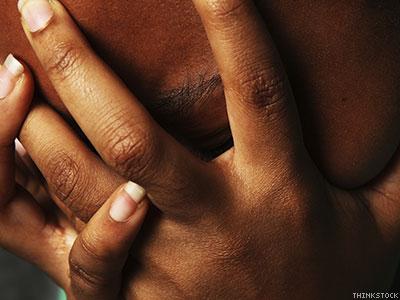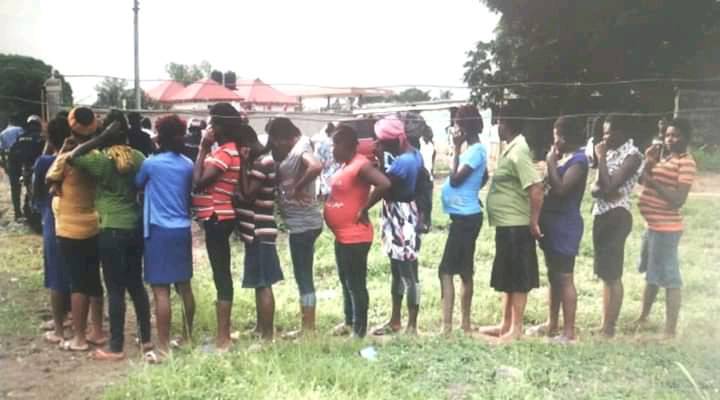She was raped when she was six years old until she turned 18 by five different men, all related to her.
One of them infected her with HIV/Aids, but Rudo is determined to see justice. She is not broken by the traumatic experiences and has vowed to fight for the protection of the girl child.
The 19-year-old from Centenary, north of the capital Harare, opens up about her darkest moments and narrates her ordeal at the hands of people who were supposed to care, protect and give her solace.
Chubby cheeked and endowed with a disarming smile, Rudo is just like any other girl her age. We met her couple of weeks ago at Médecins Sans Frontières (MSF)’s Mbare Sexual and Gender-based
Violence (SGDV) clinic in Harare during a tour by the UNaids director Michel Sidibe.
With her hands neatly folded in her lap Rudo’s friendly smile disappears as we ask her about the abuses. Big, childlike eyes fill with tears as memories overwhelm her.
“When I was six years old I went to stay with my uncle and his 25-year-old son in Bulawayo. My uncle started abusing me sexually. He threatened to kill me if I ever told anyone, so I kept quiet,” her hands shake briefly but she steadies herself and breathes deeply.
The abuse continued and Rudo’s six-year-old mind conjured up horrific images of how her uncle would snuff out her life like a candle.
Nine years later she was again raped by a neighbour. This was someone she knew, trusted and treated like a brother. Little did she know that he harboured dirty, evil thoughts.
“He put beer in my drink and I got drunk and he raped me,” she says tonelessly. Her eyes mist over with unshed tears as she battles to relive the experience. A flash of anger crosses her face but only for a moment.
The room goes quieter and it becomes more difficult to ask more questions. Bravely, Rudo picks up her story as if sensing our reluctance to keep prodding and making her recreate the moments which are still etched deeply in her mind.
“Months later I told my friend and she is the one who told my parents and they went and reported the matter to the police but only the guy from next door was arrested, my uncle was not arrested because they said he was a relative,” she says disappointment evident in her tone.
When she was 16, Rudo started living with a pastor from the church she was attending at the time.
“I told him everything that had happened to me but then he took advantage of me and also wanted to rape me but then I got away,” she says.
A year later when she turned 17 her aunt came and took her to her rural home.
“The first week we were a happy family but afterwards it changed, she started forcing me to sleep with her husband. At first I refused but then they kept on forcing me and forcing me and then I did it and it happened for a year. He is the one who infected me with HIV,” her voice trails off.
She was afraid to tell her parents and worried that it would sour relations and so she went to her uncle’s house (fathers’ brother) and told him everything but again he tried to take advantage and he also tried to sleep with her.
“I screamed and someone heard me and came to my rescue,” she said.
Her father insisted she take an HIV test after all the abuses and her result was positive.
“The first time that I was tested I wanted to die. I attempted to kill myself but I didn’t die and landed in hospital. To tell you the truth I was tired of living, I just thought that it was the end of me,” she says brokenly.
The doctor referred her to Africaid—Zvandiri, a locall-based organisation.
“Africaid is a community-based organisation in Zimbabwe which, through its Zvandiri programme, provides community-based prevention, treatment, care and support for children and adolescents living with HIV,” director Nicola Willis said.
According to the World Health Organisation (WHO), adolescents (10-19 years) and young people (20-24 years) continue to be vulnerable, both socially and economically, to HIV infection despite efforts to date.
This is particularly true for adolescents — especially girls — who live in settings with a generalised HIV epidemic. More than two million adolescents are living with HIV.
However, despite these figures there is limited effective and acceptable HIV services for adolescents, a situation which has resulted in a 50% increase in reported Aids-related deaths in this category.
During his visit to Zimbabwe the UNAids director admonished society for failing to come up with social safety nets for the vulnerable girls.
“As society we have failed in protecting girls like Rudo and I am challenging everyone to make the girl child the centre and core of our efforts against abuse,” the UNAids director said.
Rudo’s mission now?
“Iam an example to all the young girls out there and am able to speak out and like I said before I will not be silenced until justice prevails,” she declares.





No comments! Be the first commenter?